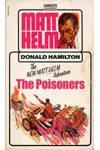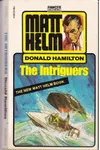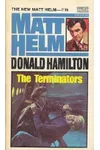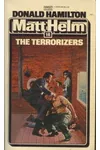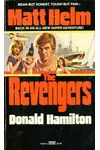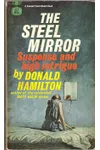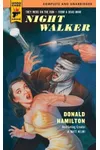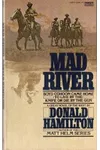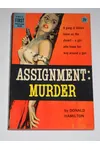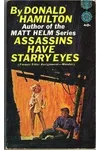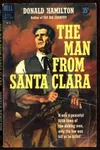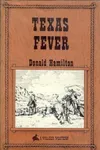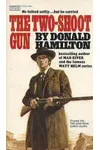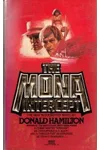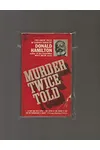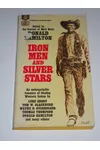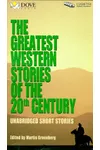Picture a Swedish-born storyteller who traded a quiet life for the gritty, pulse-pounding world of espionage—meet Donald Hamilton! Best known for his Matt Helm spy series, Hamilton crafted 38 novels over nearly five decades, blending spy thrillers, westerns, and crime fiction with a realism that hooked readers and critics alike. His no-nonsense heroes and taut narratives made him a legend in the thriller genre.
Born in 1916, Hamilton’s journey from Uppsala, Sweden, to American literary fame is as intriguing as his novels. With a knack for storytelling and a love for the outdoors, he carved a unique path in the paperback era, leaving an indelible mark on spy fiction.
The Making of Donald Hamilton
Donald Bengtsson Hamilton was born on March 24, 1916, in Uppsala, Sweden, to a doctor father and a noble lineage. His family moved to the United States, where he graduated from the University of Chicago and served in the Navy during World War II. After the war, Hamilton dove into writing, submitting stories to magazines like Collier’s Weekly and The Saturday Evening Post. His first novel, Date with Darkness (1947), a spy thriller, launched a prolific career that spanned genres and captivated readers with its raw authenticity.
Hamilton’s early life as a skilled outdoorsman and hunter shaped his writing. His love for adventure and practical know-how infused his stories with vivid detail, whether depicting a tense shootout or a rugged Western landscape. This blend of real-world experience and narrative grit set him apart in the post-war publishing boom.
Donald Hamilton’s Unforgettable Stories
Hamilton’s Matt Helm series (1960–1993) is his crown jewel, spanning 27 novels and introducing a wartime agent turned ruthless counter-assassin. Unlike the suave James Bond, Helm, code-named Eric, is a pragmatic killer with a dry wit, narrating his missions with chilling detachment. Death of a Citizen (1960) kicks off the series, pulling Helm back into espionage after 15 years as a civilian. The Wrecking Crew (1960) and The Silencers (1962) cemented his reputation, blending high-stakes action with morally gray choices.
Beyond spies, Hamilton excelled in westerns and crime fiction. His novel The Big Country (1958) inspired a classic film, showcasing his knack for vivid characters and tense conflicts. Assignment: Murder (1956), a suspense tale about a mathematician saving his kidnapped wife, highlights his versatility. Hamilton’s style—sharp prose, intricate plots, and unflinching realism—earned praise from critics like Anthony Boucher, who compared his espionage tales to Dashiell Hammett’s gritty noir.
Themes of duty, sacrifice, and survival run deep in Hamilton’s work. His heroes, like Helm, operate in ethically murky worlds, making tough calls without glamour. This grounded approach contrasted with the era’s glitzy spy stereotypes, offering readers a darker, more human take on spycraft.
Why Donald Hamilton Matters
Hamilton’s influence on spy fiction is undeniable. His Matt Helm series brought a hard-edged realism that inspired later authors and reshaped the genre. Critics like John Dickson Carr hailed Helm as a favorite secret agent, while Hamilton’s focus on morally complex protagonists paved the way for modern thrillers. Though the Dean Martin-led Matt Helm films of the 1960s took a comedic turn, they introduced Hamilton’s work to wider audiences, even if they strayed from his grim tone.
Hamilton’s legacy endures through his vast bibliography and the continued relevance of his themes. His ability to craft compelling, action-packed stories with psychological depth keeps readers returning to his pages, cementing his place as a cornerstone of espionage fiction.
- Born: March 24, 1916, Uppsala, Sweden
- Key Works: Matt Helm series, The Big Country, Assignment: Murder
- Died: November 20, 2006, Sweden
- Notable: Nominated for Edgar Allan Poe Awards (1977, 1978)
Ready for a thrilling ride? Snag Death of a Citizen and dive into Donald Hamilton’s gritty world of espionage!












